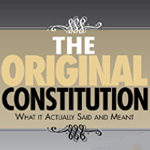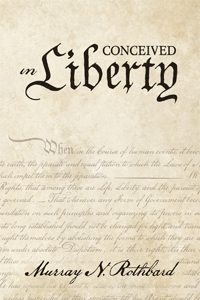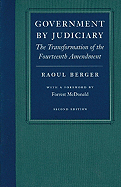Tom Woods recently put together a list of recommended books, and I thought that this was a great idea for Tenthers as well. His introduction was perfect, it fits here as well:
People often ask me what books they ought to read in order to get quickly up to speed on economics, politics, and history. Here are some suggestions.
If you’re like me, you are annoyed by books that teach you three new things. My time is limited. I like books that are full of things I didn’t know, or ideas I’d never thought of.
The books I recommend below belong in that category. They teach you something new and unexpected on every page. And they are a perfect antidote to the propaganda fed to us in the ideological prison camps where most of us spent our formative years. I list them in no particular order.
Tom, thanks for the great introduction, it applies here as well! So with that, here’s my recommendation list of the top-10 books for Tenthers. I urge you to read them in the order presented. Doing so will almost act like a series of course as you work towards your “Tenther Degree!”
To start, get a great introduction to the Founder’s constitutional thought – and vision with two books. The Founding Fathers’ Guide to the Constitution by Brion McClanahan might be the definitive layman’s handbook on the Constitution. And Kevin Gutzman’s Politically Incorrect Guide to the Constitution is THE book for the layman to overcome the “received wisdom” about what constitutional law is.
 For those that want to dig deeper into the original legal meaning of the Constitution, the ultimate book is Rob Natelson’s The Original Constitution: What it Actually Said and Meant, published right here at the Tenth Amendment Center. TOC gives you the tools you need to understand the proper role of the federal government and to counter common myths about America’s Founders and the Constitution they gave us.
For those that want to dig deeper into the original legal meaning of the Constitution, the ultimate book is Rob Natelson’s The Original Constitution: What it Actually Said and Meant, published right here at the Tenth Amendment Center. TOC gives you the tools you need to understand the proper role of the federal government and to counter common myths about America’s Founders and the Constitution they gave us.
As Natelson shows so well in The Original Constitution, it’s essential to understand what the constitution meant to those who drafted it (the Framers) and those who approved it (the Ratifiers). St. George Tucker’s 1803 View of the Constitution of the United States was the standard text on the understanding of the document for decades. The importance? Well if this is the book that explained the common public understanding of the constitution at that time, it holds great value for understanding it today.
Once you’ve got a good understanding of the Constitution’s framework is all about, the question almost always remains: What do we do when the Constitution is violated? Tom Woods’ Nullification is the handbook on the topic. It’s filled with all the historical information you need to understand the constitutional basis for the doctrine. And Mike Maharrey’s new book, Our Last Hope: Rediscovering the Lost Path to Liberty, places nullification in a modern context, and even provides some insight on good action steps for you to take today.
 At this point, you’re more than half way through. You know more than most on the Constitution and what to do about violations of its limits. Moving forward, is taking a bit of a step back. I think Murray Rothbard’s Conceived in Liberty is not only the most information-packed history of America ever written, it’s also in a style that’s extremely engaging. Rothbard had a story-telling knack like few others and you’ll find yourself immersed in the long history of the early days of America.
At this point, you’re more than half way through. You know more than most on the Constitution and what to do about violations of its limits. Moving forward, is taking a bit of a step back. I think Murray Rothbard’s Conceived in Liberty is not only the most information-packed history of America ever written, it’s also in a style that’s extremely engaging. Rothbard had a story-telling knack like few others and you’ll find yourself immersed in the long history of the early days of America.
Next, you’ll want to dive head-first into Kevin Gutzman’s James Madison and the Making of America. This book isn’t just the best-written biography on the 4th president, it’s much more Read it to find out why. You won’t be disappointed!
The last two books on this reading list take you to some deep scholarly study on two of the most important issues that Tenthers address. The Origins of the Necessary and Proper Clause serves as a reference source for scholars seeking to understand the intellectual foundations of one of the Constitution’s most important clauses. It was written by four of the nations leading constitutional experts, Gary Lawson, Geoffrey P. Miller, Robert G. Natelson, and Guy I. Seidman.
 Finally, Raoul Berger’s Government by Judiciary might be the most important book you’ll read moving forward. It is the thesis of this monumentally argued book that the United States Supreme Court—largely through abuses of the Fourteenth Amendment to the Constitution—has embarked on “a continuing revision of the Constitution, under the guise of interpretation.” If you choose just one book after the first half, this is the one you should get.
Finally, Raoul Berger’s Government by Judiciary might be the most important book you’ll read moving forward. It is the thesis of this monumentally argued book that the United States Supreme Court—largely through abuses of the Fourteenth Amendment to the Constitution—has embarked on “a continuing revision of the Constitution, under the guise of interpretation.” If you choose just one book after the first half, this is the one you should get.
Ok, I couldn’t stop at 10. So as a bonus read, Louis Fisher’s Presidential War Power is just plain awesome.
Have you read any of these books? If so, which have you read and what are your thoughts on them? Post in the comments below.
- Remembering John Dickinson: “One of the great worthies of the revolution” - November 13, 2024
- Kentucky Resolutions of 1798: Jefferson on the Constitution’s Structure and How to Defend It - November 11, 2024
- Presidential Actions to Uphold the Constitution: A Five-Step Guide - November 8, 2024
